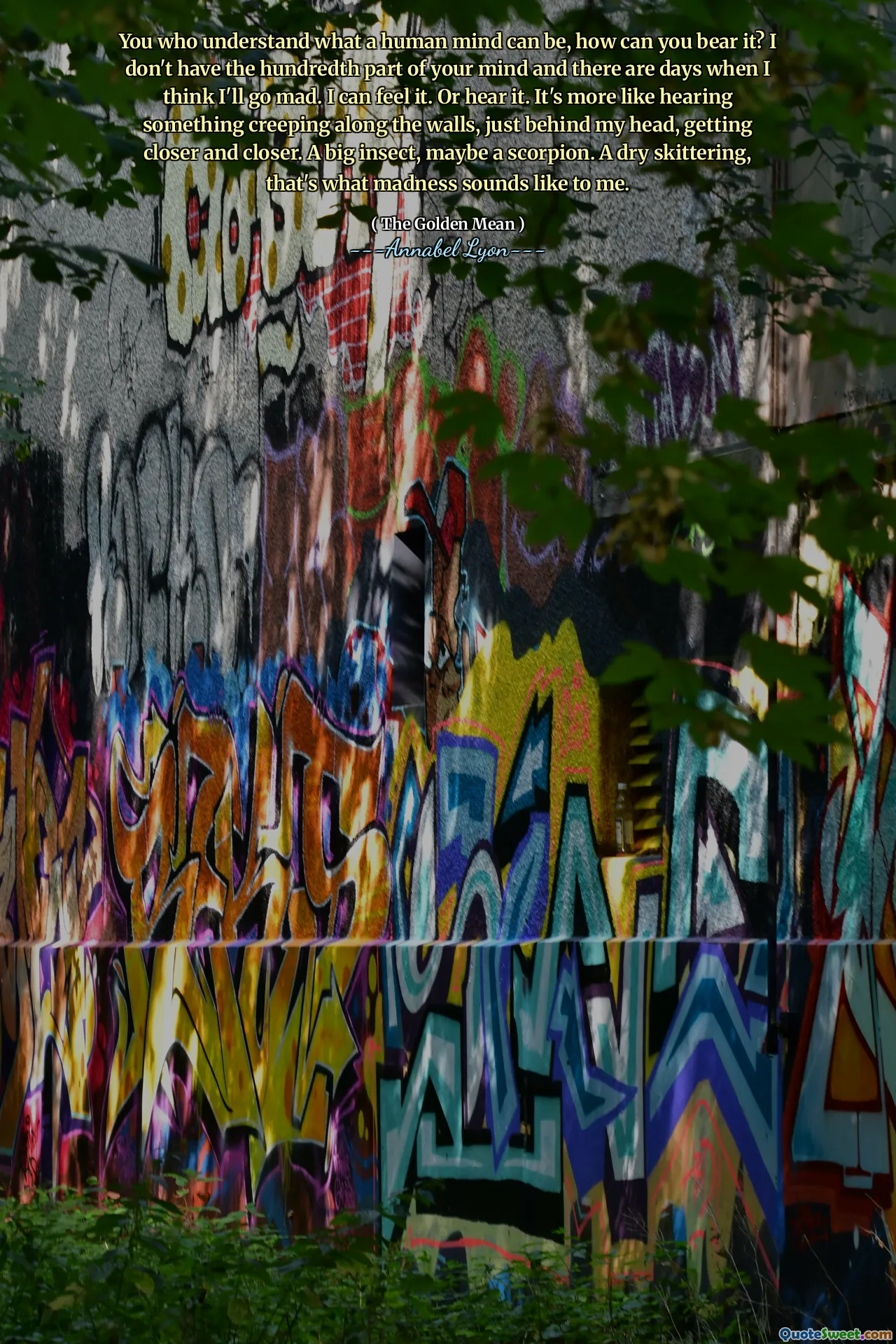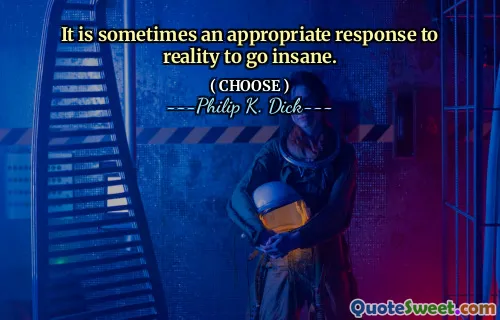
You who understand what a human mind can be, how can you bear it? I don't have the hundredth part of your mind and there are days when I think I'll go mad. I can feel it. Or hear it. It's more like hearing something creeping along the walls, just behind my head, getting closer and closer. A big insect, maybe a scorpion. A dry skittering, that's what madness sounds like to me.
The passage vividly captures the fragility and complexity of the human mind, highlighting the profound sense of mental strain and the often unnoticed battles occurring within. The speaker's acknowledgment of another person's understanding of the mind's potential juxtaposes the heavy burden that knowledge carries. There is an intense visceral imagery here—comparing madness to a creeping insect or scorpion—evoking feelings of intrusion, paranoia, and uncontrollable anxiety. This metaphor emphasizes how mental disturbances can feel invasive, persistent, and unsettling, almost as if they are external entities invading one's awareness. The imagery of the skittering sound behind the head emphasizes a sense of paranoia and the gradual, relentless approach of chaos, suggesting that mental health struggles can be silent yet increasingly overwhelming. This quote resonates with the universal experience of battling internal turmoil, often invisible to others, yet acutely felt by the individual. It underscores the delicate balance of mental stability and how thin that line can be for many. The description also reflects on the empathy and curiosity about those who can comprehend the depths of the human psyche, while simultaneously observing the toll such understanding can exact. Overall, it invites reflection on mental health, the power and peril of understanding oneself, and the shared vulnerability that ties humanity together.


